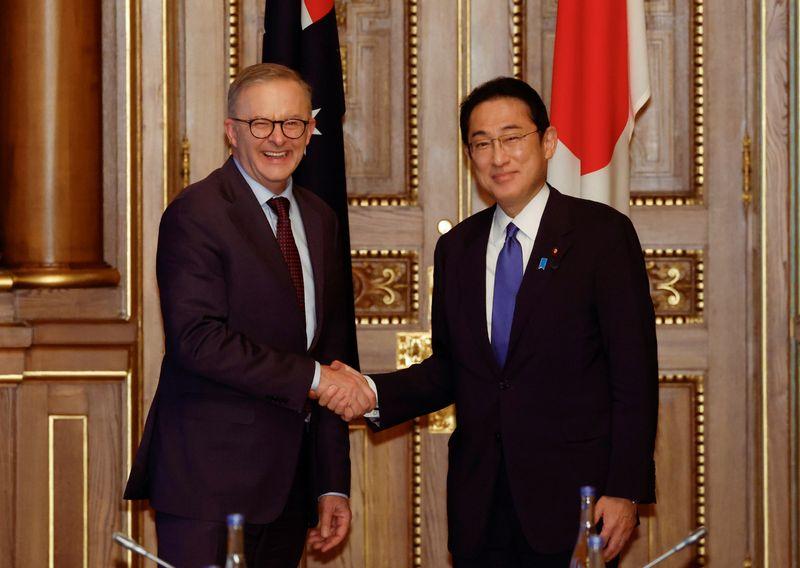Japanese Prime Minister Fumio Kishida is heading DownUnder for talks with his Australian counterpart Anthony Albanese this weekend that will focus on defence and energy security.
“Australia is the most important country for Japan’s energy policy,” Kishida told reporters in Tokyo on Friday before boarding a plane for Perth in Western Australia.
“I want to hold frank discussions over the importance of securing a stable supply of energy resources.”
Several Australian state leaders have argued recently for a share of local gas production to be diverted for the domestic market to avoid shortfalls.
However, they are mainly in eastern States such as Queensland and New South Wales, as a former premier in the West had the wisdom to ensure it had a share of supply before vast LNG and gas projects in the country’s north were started.
Australia is a major supplier of iron ore, coal and gas to Japan, and the meeting will be held in the capital of Western Australia, 3,700 km (2,300 miles) from the national capital Canberra, to showcase the state’s importance in supplying Japan’s energy needs, including renewable energy. WA is also a key source of beef and wheat to Japan.
ALSO SEE:
Japan Plans Major Arms Buildup as China Eyes Taiwan Takeover
New Security Agreement
Australia and Japan are expected to sign a new security cooperation agreement, updating a pact struck in 2007, to respond to a significantly altered regional security environment, officials said.
Japan’s ambassador to Australia, Shingo Yamagami, in a series of interviews with Australian newspapers this week, flagged agreements on intelligence sharing and military interoperability between the allies, pointing to China as the catalyst.
“We have to respond to a deteriorating security environment, not only in the South China Sea (and) East China Sea, but the entire Pacific region,” he told the Australian newspaper.
“Whenever Chinese military planes approach our sky, we have to scramble flights against approaching Chinese aircraft. The number of scrambles in 2006 was only 22. But in 2021 the number shot up to 722,” he was quoted as saying.
The leaders would look to strengthen the two nations’ defence and security partnership, after a Reciprocal Access Agreement for defence forces to operate and exercise together was signed in January, the Australian government said in a statement.
Beyond Australia’s biggest exports of iron ore and coal, Japan is looking to Australia to support its energy transition, by supplying liquefied hydrogen and ammonia, which it uses as a fuel in coal-fired power plants to cut carbon dioxide emissions.
“As Australia seeks to become a clean energy superpower, we will remain a steady and reliable supplier of energy to Japan including for new energy sources like hydrogen,” Albanese said in a statement this week.
Australia and Japan are also members of the Quad group of nations, with the United States and India.
- Reuters with additional editing by Jim Pollard
Read more:
Australia Bids to Boost Pacific Defence Links, Counter China
Australia, Singapore Agree New ‘Green Economy’ Deal
Japan’s Inflation Hits 8-Year High, Tests BOJ’s Soft Policy
Japan Repeats Readiness to Back Yen as it Hits 32-Year Low
























